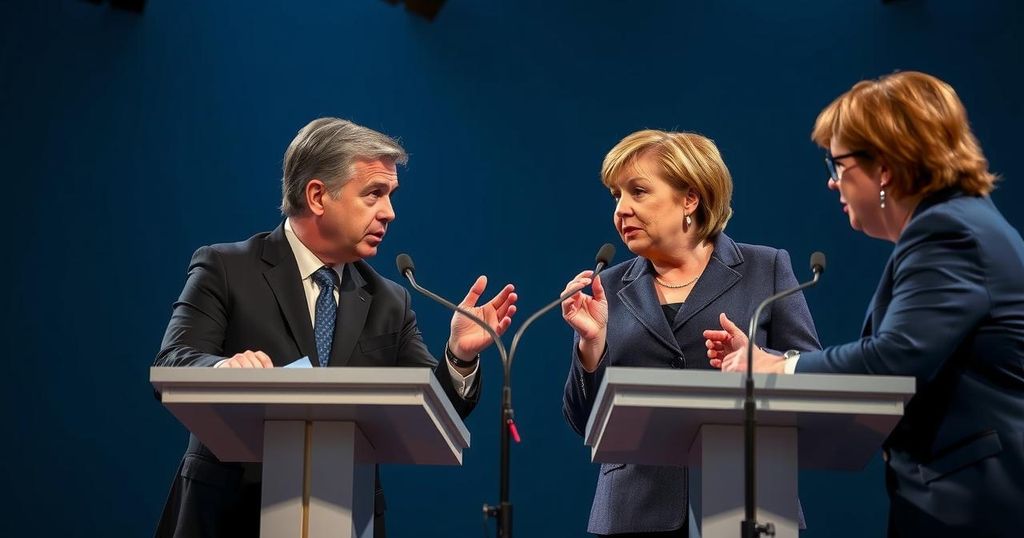Scholz and Merz Clash as German Election Campaign Begins

As Germany’s election campaign kicks off, Chancellor Olaf Scholz and Conservative rival Friedrich Merz engage in a fierce dispute over economic management, foreign policy on Ukraine, and immigration. Scholz criticizes Merz’s approach and defends his coalition’s record, while Merz argues for a fundamental change in policies to revive the economy and address migration concerns. With elections approaching, both candidates must navigate a polarized electorate.
The German election campaign commenced with Chancellor Olaf Scholz facing off against his Conservative rival, Friedrich Merz, amid a backdrop of economic challenges and a crumbling coalition. Scholz criticized Merz, accusing him of being unsympathetic towards the economically disadvantaged and reckless in foreign policy, invoking the metaphor of playing “Russian roulette” with Russia. While Scholz seeks to rally support by referencing his past electoral triumphs, Merz has attacked Scholz’s coalition for allegedly jeopardizing the country’s economic stability through ineffective regulations and policies. Scholz defends his approach to the ongoing war in Ukraine, advocating for a careful balance of support while explicitly rejecting aggressive military posturing. On domestic issues, contrasting visions on economic policy, immigration, and taxation further illustrate the divide between the two candidates as they vie for public favor in the lead-up to the elections.
The context of the German election campaign is marked by Olaf Scholz’s Social Democratic Party (SPD) and the Christian Democratic Union (CDU) led by Friedrich Merz. Scholz’s coalition, which involved the Greens and the Free Democrats, has faced significant scrutiny, deteriorating in the public eye following its failure to address pressing economic issues. With key topics including economic recovery, migration, and foreign policy, both candidates must articulate clear, compelling narratives to win over an electorate increasingly polarized on these issues, particularly concerning the rise of far-right sentiments in Germany.
In summary, the onset of the German election campaign reveals a contest characterized by stark ideological divides regarding economic policies, immigration, and foreign relations, particularly in the context of the Ukraine conflict. Olaf Scholz defends his coalition’s approach while emphasizing stable economic and social policies, contrasting sharply with Friedrich Merz’s calls for a radical shift to alleviate economic issues. As both candidates outline their visions, the outcome remains uncertain, shaped by their ability to resonate with voters amidst rising populism.
Original Source: www.france24.com








